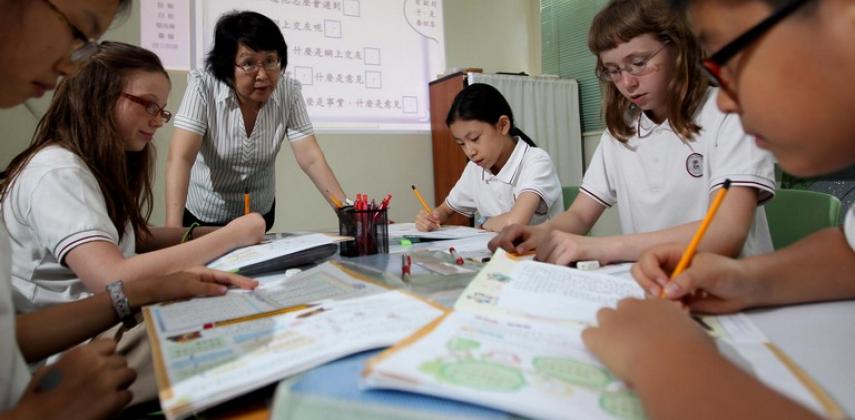English teachers in demand, among others
The demand for native-speaking English teachers (NETs) looks set to remain strong well into the future, according to Dannie Hongchoy, CEO and executive director of Headstart Group, an education provider and recruitment agency for NETs. "The government's support for schools in providing an authentic English learning environment has not changed," she says. "Schools recognise and appreciate the benefits of having NETs who offer a cultural stimulation in English teaching."
Hongchoy thinks that having a strong CV is definitely a good starting point for NETs to boost their employability. "Relevant teaching experience, plus dedication and commitment to teaching - rather than being opportunistic - will set you apart from your peers," she says. "A first or higher degree in teaching is preferable. However, as local students are learning English as a second or foreign language, a qualification in Teaching English as a Foreign Language [TEFL] will add to your credentials. All my partner schools require this qualification as a prerequisite for applying to teach in their schools."
Teachers play an important role in shaping people's lives, Hongchoy adds, so a lot of effort should be devoted to looking for the best. "As I screen NETs for my partner schools, I am fully aware that I must provide the best teachers who come my way," she says.
"I look for only two things when interviewing. Firstly, is the NET open-minded and willing to embrace cultural differences? While we claim Hong Kong is 'Asia's World City', we have our local specifics. Class sizes, teachers' workloads, involvement with after-school activities, and our administrative culture and style are likely to be different from the NETs' home [country]. When a NET is open-minded and willing to embrace cultural differences, they are happy.
"The second criterion is the ability to connect with students. They are the focus of our industry. The ability to be student-focused [and to] genuinely connect with them to facilitate their learning and make them hungry for more is what I value."
Hongchoy understands the importance of helping newcomers to the city settle in. "I am fully transparent about what is expected of NETs by their schools and students. Then I orientate them about living conditions and costs in Hong Kong. This is a very congested and expensive city. They may not have as much space as in the place they come from, and yet rentals can be very costly. They need to learn to live with these facts," she says.
Elsewhere, the English Schools Foundation (ESF), which operates a number of local schools, is planning to hire 120 new teachers in Hong Kong and from overseas countries including the UK, Australia, Canada, the US, Singapore and New Zealand. "The vacancies will be in our four kindergartens [and] nine primary, five secondary and two private independent schools," says Charles Caldwell, HR director at the ESF. "There are also a number of senior positions [open], such as vice-principals and department heads."
ESF jobs have always been popular and suffer no shortage of applicants. The challenge, again, is helping successful candidates settle in Hong Kong. "New teachers need to set up their living arrangements very quickly," Caldwell says. "From the time they land to starting in the classroom may be as little as two to three weeks. Once they land, a lot of work goes into helping them find a flat and get the basics such as an ID card and bank account. We have induction programmes to help them learn more about the ESF, the environment, and even the basics of Cantonese."
The ESF looks for teachers who do more than just enjoy working with children. "We expect our teachers to be able to look beyond the enjoyment horizon to see each child from an academic and emotional perspective," Caldwell says. "Teachers can form an all-around perspective of how the students they teach develop as children. What is each child's potential? What world of opportunities can be opened up for them? This requires a flexible outlook and a flexible quality in the teacher."
At Victoria Shanghai Academy, primary school principal Susan Smith says the school's demand for teachers varies as colleagues retire or move on. "Right now we are expanding and are looking for Chinese teachers to teach the IB [International Baccalaureate] curriculum," she says. "Regardless of the areas teachers major in, we need them to embrace our inquiry-teaching method. Our classrooms are very different from the traditional learning method, where children spent most of their time sitting and listening. Our students are divided into groups and work together to solve problems."
Smith also expects teachers to embrace lifelong learning. "I like teachers who are well-read and who will look up books and journals on education during their free time," she says. "Our school also has a generous training and development budget. This takes teachers on overseas training courses and invites guest speakers to share [experiences] with staff. There are also various online training programmes that colleagues are strongly encouraged to join."


